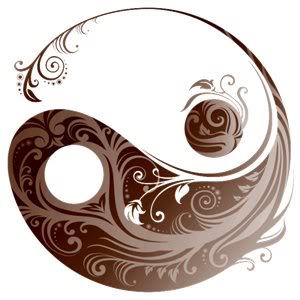Winter is the season of regeneration and repair, so it is the perfect time to tone the yin and to call on the wisdom of the Water element. This is the most Yin season, energy is now stored deeply down solid in the roots in nature. Winter is the season to nourish and support the kidneys, a time to nurture the most vital structures of the body, to focus on restoring kidney vitality so that when spring comes we have enough energy to grow and to function well. During winter the body changes from weak Yin to extreme Yin, qi deficiency occurs in the Kidneys and Wei Qi (protective qi) shrinks to the centre of the body. The Kidneys are associated with the emotion of fear and during this season the spirit can sink and depression increases. Winter is the time to let go of fear, a time to find acceptance for the changes in your life and to cultivate your ability to adapt and flow as we move into a deep resting and hush of the season.
In addition to the Kidneys during winter there is a focus on the paired organ; the Urinary Bladder, as well as the Adrenal Glands, Ears, and Hair. During this season our Qi retracts from the outer area of the body and settles in the Bones, Kidneys, and Lower Dantian which can leave our protective Qi vulnerable to germs and viruses. This is a time for mild – moderate physical exercise, it is recommended to shed just a little sweat, not too much, otherwise it hurts the yang energy of the body. Its a wonderful time for Qigong, Taiji, Yoga and Walking. You can strengthen the Wei Qi energy through stimulating and massaging the ears, kidneys and balls of the feet.
Winter is also a time to conserve energy spiritually, to recollect your thoughts, do sitting meditation, rest more, and cut down on overstimulation and busyness. If possible don’t stay up too late during this period, try to go to bed earlier, 9 or 10 o’clock and rise a little later, after the sun comes up. Not conserving energy in winter is certain to lead to illness in the coming spring. During Winter, people with heart and lung problems should take extra care to keep warm, the coldness contracts the blood vessels and can exacerbate conditions such as asthma and other respiratory issues.

Join me in my Winter Solstice Seasonal Qigong Workshop to explore gentle stretches, stimulation and massage, flowing movements and standing postures complementary to the season. We will look inward, strengthen our kidney essence, release stored fears, increase wisdom and stimulate the removal of toxins from the body.
Written by Qigong teacher Nicole Betts. Nicole teaches at Kundalini House on Wednesday 8-9am and Thursday 12:15-1:15pm.







Leave A Comment